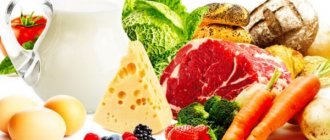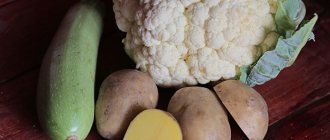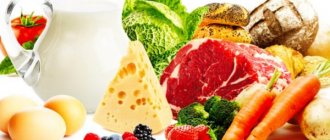Protein consists of amino acid molecules that are linked to each other by peptide bonds. 20 amino acids are involved in protein synthesis in the body, eight of them (for an adult) are essential. This means that the body cannot synthesize these amino acids; they only come from food.
Proteins are used to metabolize cells, produce enzymes, hormones, immune cells and other compounds that provide all important functions of the body.
Even the leanest diet includes some amount of protein. The question is whether it is enough for health, good physical shape and high-quality functioning of all systems and organs.
HOW MUCH PROTEIN DO WOMEN NEED?
So how much protein should women consume? Numbers vary depending on the source. According to the Centers for Disease Prevention and Control, the standard recommended intake for the average person is approximately 46 grams of protein per day for women and 65 grams per day for men. [5]
Keep in mind that this is the recommended dose for a person who spends most of their time sitting. If you exercise and strain your muscles, you should increase your protein intake. Likewise, if you are dieting and getting fewer calories from carbohydrates and fats, you need to increase the amount of macros you consume from proteins.
People who only exercise and are not dieting should consume about 0.8 to 1 gram of protein per 0.45 to 0.5 kilogram per day. If you eat right and exercise, you need to consume 1 - 1.5 grams of protein per 0.45 - 0.5 kilograms per day. If you are reducing your calorie intake, be sure to increase your protein intake. Keep this in mind when building your diet.
Focus on consuming high-quality protein sources such as chicken, fish, lean red meat, eggs, low-fat dairy products and high-quality whey protein.
When is the best time to eat protein?
Also important here is when you eat protein. Nutritionists say people should consume this nutrient throughout the day instead of, say, one chicken steak with dinner. This way, your body is more likely to turn whatever you eat into beneficial components.
Don't forget that grains, seeds and even vegetables contain protein. While they may not get as much attention as eggs and meat, these foods gradually increase your protein intake throughout the day.
If you are interested in science and technology news, subscribe to us on Yandex.Zen so as not to miss new materials!
The effect of protein on the body of training women
There is also an interesting study from the Performance Enhancement Lab at the University of South Florida, where they looked at the effects of varying amounts of protein in the diet on the body and endurance of exercising women. [6]
The study involved two groups of women who followed a strength training plan and a resistance training program for 8 weeks . The program consisted of two parts: two training days for the upper body, and two days for the lower body. Half of the women ate a high-protein diet and the other half ate a low-protein diet.

The high protein group consumed 1.1 grams of protein per pound of body weight, including 25 grams of whey protein before and after each workout. The second protein group consumed 0.55 grams of protein per pound of body weight, including 5 grams of whey protein immediately before and after exercise. Each day, participants consumed a certain amount of protein, but were allowed to eat as many carbohydrates and fats as they wanted.
V závere štúdie sa ukázalo, že ženy, ktoré konzumovali väčšie množstvo bielkovín získali podstatne viac svalovej hmoty (cca 2.8 kg) v porovnaní so skupinou, ktorá konzumovala menšie množstvo bielkoví n (0.68 kg). Skupina, ktorá konzumovala viac proteínu, stratila viac telesného tuku ako skupina s nižšou dávkou bielkovín , hoci táto zmena nedosiahla žiadnu štatistickú významnosť.
What is the effect of proteins according to the study?
While these results aren't shocking, they do confirm what we already know: if women, especially those who exercise intensely, consume more protein, they are likely to gain more muscle mass than women who consume less protein.

However, the following fact may surprise you. On average, women with high protein intake consumed an additional 423 calories each day from protein . Therefore, it can be assumed that someone who consumes an additional 400-500 calories per day for eight weeks will easily increase their fat levels; however, this did not occur in this study.
Women in the higher protein intake group lost a greater percentage of body fat than women in the lower protein intake group , even though they were consuming more calories! Specifically, the higher protein group lost 1.08 kg of fat compared to the second group, which lost just 0.77 kg.
This was the first study to include only women who exercise. However, similar results can also be observed in other studies involving men or men and women together . Research from Nova Southeastern University has shown that consuming 500 to 750 calories daily from protein sources, especially protein, does not increase body fat levels. [7],[8] In contrast to the current study, participants who consumed more protein did not see as significant changes as in this study.

Due to these results, this may mean that women actually respond better to higher protein intake to increase muscle mass than men. However, this is just a theory that needs to be confirmed by further research.
Stop looking at the scales
You've probably already heard the phrase, "Don't worry about what your scale says," and now you have a good reason to pay attention. If previous studies had controlled for body weight, women in the higher protein intake group would have realized that they had gained just over 0.9 kg. And for women this is a rather frightening fact.

However, the study was conducted by experts and scientists who assessed the condition of the body, not just body weight. They found that the higher protein group gained more muscle and lost more fat than the lower protein group—so you won't see all the results on the scale.
Let's look at the changes - fat loss and muscle growth . If you find that your weight has increased, but your fat percentage has decreased, know that what you did was right and good! It can also be helpful to take pictures of your progress, pay attention to how you feel in certain clothes, or monitor your energy levels in the gym.
Conclusion
If your goal is to gain muscle mass and reduce fat percentage, you will probably think about a high protein diet and intense training. So what is our recommendation? Women should consume about 2 grams of high-quality protein per kilogram of body weight to improve body condition and maximize regeneration. So feel free to consume protein shakes or just add chicken breast to your salad!
Ladies, how many grams of protein do you consume per day? Share your answers in the comments. If you liked this article and found it useful, please support us by reposting.
Rational protein nutrition
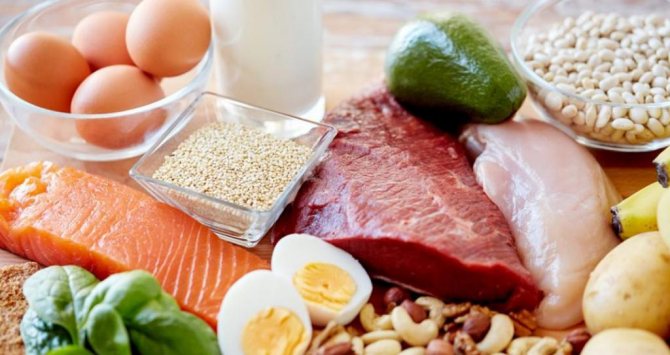
Animal proteins are better absorbed by the body and contain all the amino acids, while plant foods are less digestible and contain a selective composition of amino acids. Accordingly, animal protein is considered to be of the highest quality. However, a person should include both animal and plant proteins in their diet. It is best to combine less valuable proteins of plant origin (porridge, bread, pasta) with animal proteins (meat, fish, eggs, cottage cheese, cheese, milk). Thermal processing of food should exclude frying. It is best to bake, boil or stew foods. Listed below are the top protein foods. Knowing how much protein you need to consume per day, you can create a menu to suit your taste.
| Product name | Animal proteins (per 100 g) | Product name | Vegetable proteins (per 100 g) |
| Eggs | 12 | Hazelnut | 16.1 |
| Egg powder | 45 | Almond | 18.6 |
| Powdered milk | 25.6 | Cashew | 25.4 |
| Cottage cheese (low fat), browned cheese | 18 | Pine nut | 11.6 |
| Cottage cheese (fat) | 14 | Walnut | 15.6 |
| Milk (1%), milk (3.5%) | 3.3; 3 | Peanut | 26.3 |
| Cheeses (hard) | 25-35 | Pistachios | 20.8 |
| Pike | 18.4 | Seeds (sunflower) | 20.7 |
| Cream 10%, sour cream 10%, whey | 3 | Seeds (pumpkin) | 24.5 |
| Turkey (breast) | 19.2 | Buckwheat | 12.6 |
| Yogurt (low fat) | 4,2 | Beans (white) | 25.1 |
| Chicken (breast) | 21.5 | Beans (red) | 22.3 |
| Goose | 28 | Oatmeal | 11.9 |
| Sausages (boiled) | 11-14 | Lentils | 24.2 |
| Veal, rabbit | 20.4 | Millet | 12 |
| Salmon, halibut | 20 | Soybeans | 34.9 |
| Beef | 18.9 | Peas | 23 |
| Pork (not fatty), lamb | 16.4 | Semolina | 11.3 |
| Cod, carp | 17.8 | Corn grits | 8.3 |
| Tuna | 24.4 | Wheat bread | 8.1 |
| Pork sausages | 10.1 | Rye bread | 4.7 |
| Milk sausages | 12.3 | Rice cereal | 7 |
| Squid | 18 | Pearl barley | 9.3 |
| Shrimps | 20.6 | Pasta | 10.4 |
| Pike perch, bream, pink salmon | 21 | ||
| Salmon, herring | 19.9 | ||
| Mackerel | 22.7 | ||
| Trout | 19.2 |
Proteins of meat products
Animal muscle tissue is an optimal source of protein in terms of balanced amino acid composition.
| Myosin | This contractile protein makes up about 35-40% of total muscle mass. |
| Actin | Also involved in the process of muscle contraction; its share is allocated approximately 15%. |
| Myoglobin | A heme-containing protein that binds oxygen and releases it to actively working muscle tissue under conditions of hypoxia or when preconditions for it arise. |
A few words about the imaginary harm of high protein consumption
The media blames squirrels for bone and kidney damage. Later studies showed that the proteins actually protect or have no effect on bones. The harm of high protein consumption has not been confirmed.
A large amount of protein does not harm the bones and kidneys of a healthy person.
Conclusion of WHO Australia and New Zealand [8]:
“There is no published data confirming that diets containing up to 2.8 g of protein per kg/day have an adverse effect on the metabolic processes in the kidneys of athletes (my note - let alone ordinary people). In addition, there was no association between protein intake and the development of kidney failure."
About the importance of protein
Protein is a substance that is formed from a group of amino acids that are held together to form different types of elements. After entering the gastrointestinal tract, it is affected by enzymes, which leads to “breakdown” into amino acids. The latter are carried through the blood to various parts of the body and participate in the construction of human cells (fibers, muscles, organs, and so on).
In addition, proteins are involved in the production of antibodies and enzymes necessary for the organization of vital processes. Thanks to amino acids, the immune system is strengthened and its response to external stimuli is improved.
Thus, proteins perform a number of functions:
- Construction. With their help, muscles, bones, hair, legs and even fine cellular structures are built.
- Enzymatic. Protein in the form of enzymes is involved in metabolic processes and many chemical reactions. Vitamins without protein are not absorbed and do not perform their intended functions.
- Hormonal. It's no secret that hormones regulate many body functions. With a deficiency of amino acids, the risk of disturbances in the hormonal system, unpleasant consequences and health problems increases.
- Protective. Protein components neutralize, bind and remove toxins. In case of deficiency, the body becomes clogged, the rate of antibody formation decreases, and immunity is weakened.
- Transport. Protein molecules are involved in the transport of hormones, lipids, carbohydrates, vitamins and other vital elements.
- Energy. Amino acids are not directly considered a source of energy, but under certain conditions they take on this function.
- Informational. Short chains of amino acids are considered the main carriers of hereditary information.
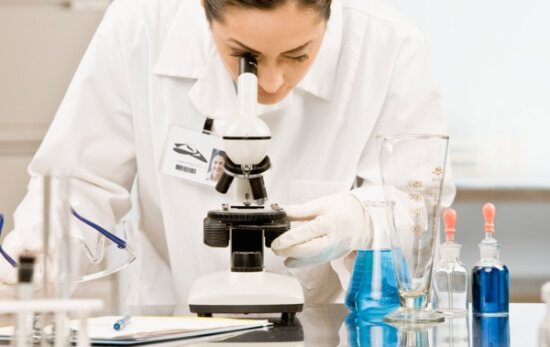
Why is protein deficiency dangerous?
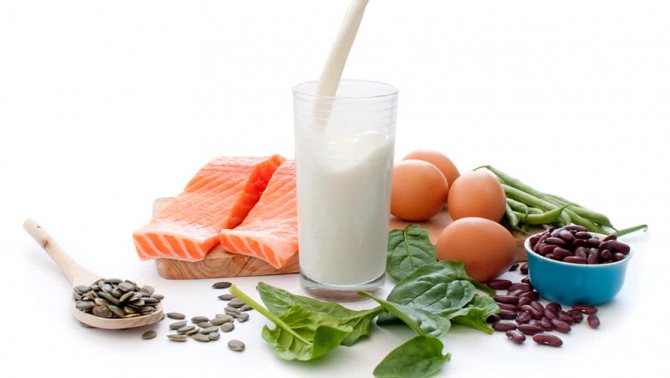
Protein deficiency can lead to abnormalities in the body's functioning. If the deficiency is minor, then a person may feel tired and easily fatigued. But the less the nutrient becomes in the body, the stronger the manifestations will be. Here are some of them:
- muscle weakness and lack of coordination;
- migraines, insomnia;
- disruption of the cardiovascular system;
- edematous conditions;
- problems with hair and nails;
- nervous conditions (anxiety, irritability, aggressiveness, impressionability, etc.);
- weight loss;
- decreased bone strength;
- weakening of the immune system.
These are just some of the manifestations of protein deficiency. A lack of this component is dangerous for humans, as it can lead to physical and psychological exhaustion. Therefore, it is necessary to regularly eat protein foods. Most products contain protein, so a deficiency of this element is rare, but, nevertheless, some groups are at risk. These are children and adolescents, sports enthusiasts with increased stress, who have errors in nutrition, as well as people on a diet that excludes or severely limits protein.
Symptoms of excess protein
The body will certainly feel that it has been “overfed” with protein foods. Typically this is expressed as follows:
- constant thirst;
- pain in the kidneys and liver;
- joint pain;
- functional digestive disorders;
- weight gain;
- nervous disorders, fatigue;
- hormonal imbalances.
It is also worth noting that excess protein can lead to poisoning of the body with ammonia produced during the breakdown of the nutrient. And this is fraught with inflammatory and oncological diseases. Therefore, even when consuming such an important component, it is imperative to adhere to measures.
How many essential amino acids do you need?

How much protein, which contains irreproducible acids, does a person need per day for health? The norm of essential amino acids depends on the individual characteristics of a person: age, parameters, lifestyle, nutrition system, etc. On average, approximately 0.8-4.0 g of each amino acid should enter the body of a healthy adult. At the same time, a growing body, professional Athletes and people involved in intense mental activity need a larger volume. In principle, by consuming protein foods, a person receives the required percentage of acids, but if he eats only plant foods, then he may miss some amino acids. Therefore, it is recommended to focus on animal proteins, which contain all the essential acids, and include plant proteins as a supplement.
In the question of how much protein of animal and plant origin a person needs per day, it is recommended to adhere to the proportion of 80% and 20%. If, nevertheless, a person prefers plant foods, then he should organize his menu so that all plant products complement each other. For example, lentils contain leucine, almonds contain isoleucine, etc.
Essential amino acids in protein
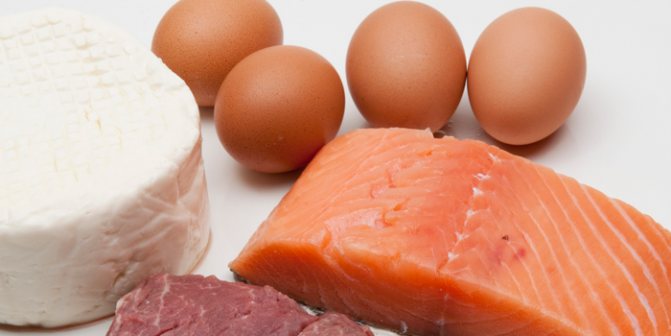
So, knowing how much protein you need to consume per day, it would seem that you can start selecting a menu, but here’s the thing - protein is different from protein. It is necessary to consider what amino acids the protein food you eat consists of. All protein products contain amino acids, from which the body creates its own proteins necessary for life. In total, 20 amino acids are involved in the formation of proteins, 12 of which can be produced by humans independently. The rest do not know how to do this, so they must do so with food, otherwise disruptions in the body will begin, in particular, stunting and weight loss. For example, leucine prevents the destruction of muscle tissue during active physical activity and promotes fat burning; together with other amino acids, it participates in muscle recovery and increases the production of growth hormones.
Isoleucine is also essential for physically active people, as it increases endurance and provides the body with energy. There are at least 6 more essential amino acids that a person must obtain from food. Protein products with such essential compounds are considered the most valuable. Nonessential acids are also very important, but with enough essential acids they can be synthesized from them. That is why it is important to consider not only how much protein a person needs per day, but also from which products the nutrient is best obtained.
Below is a table describing all the essential amino acids and the main protein foods in which they are found.
| Leucine | Chicken, pork, rabbit, goose, squid, mussels, pink salmon, carp, cheese, cottage cheese, eggs, legumes, millet |
| Lysine | Milk, cottage cheese, hard cheese, feta cheese, yogurt, red meat, chicken, turkey, cod, sardine, eggs, soybeans, beans, peas |
| Tryptophan | soy, cheese, milk, yogurt, cottage cheese, oatmeal, peanuts, sesame seeds, walnuts, meat, fish |
| Phenylalanine | soy, cheese, seeds, nuts, beef, poultry, pork |
| Valin | caviar, cheese, soy, lentils |
| Isoleucine | nuts (almonds, cashews), chicken, eggs, sea fish, pork, beef, rye, milk, hard cheese, buckwheat |
| Threonine | beef, lamb, eggs, chicken, turkey, hard cheese, feta cheese, fatty sea fish, barley, rye, buckwheat |
| Methionine | eggs, pork, beef, chicken, sea fish, milk, beans, sesame, soybeans, lentils, walnuts, peanuts, almonds, corn |
Amino acid complexes to replenish protein reserves
Now about amino acids. Amino acids are another way to replenish protein reserves in the body. Amino acid complexes prove to be very effective during intense training and strict diets. To protect muscles from destruction, many athletes begin to use amino acid complexes several months before competitions.
Particularly effective in matters of muscle growth are branched chain amino acids, or BCAA, and there are three of them. These are leucine, isoleucine and valine. These amino acids directly affect protein synthesis. Leucine plays the leading role in this group. Its connection with the anabolic agent mTOR creates the conditions for protein synthesis and, as a result, for muscle growth. By supplying yourself with BCAAs, you promote proper muscle growth and recovery.
